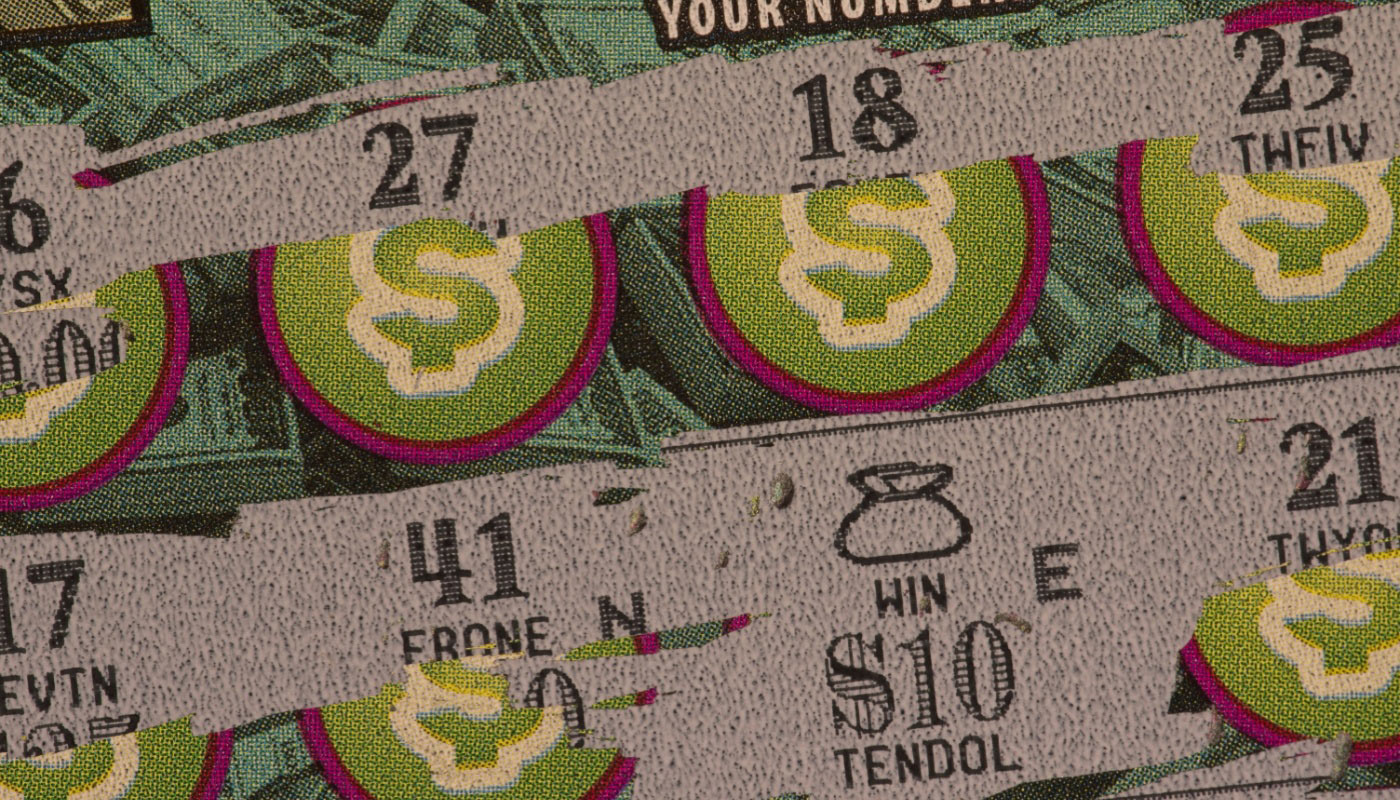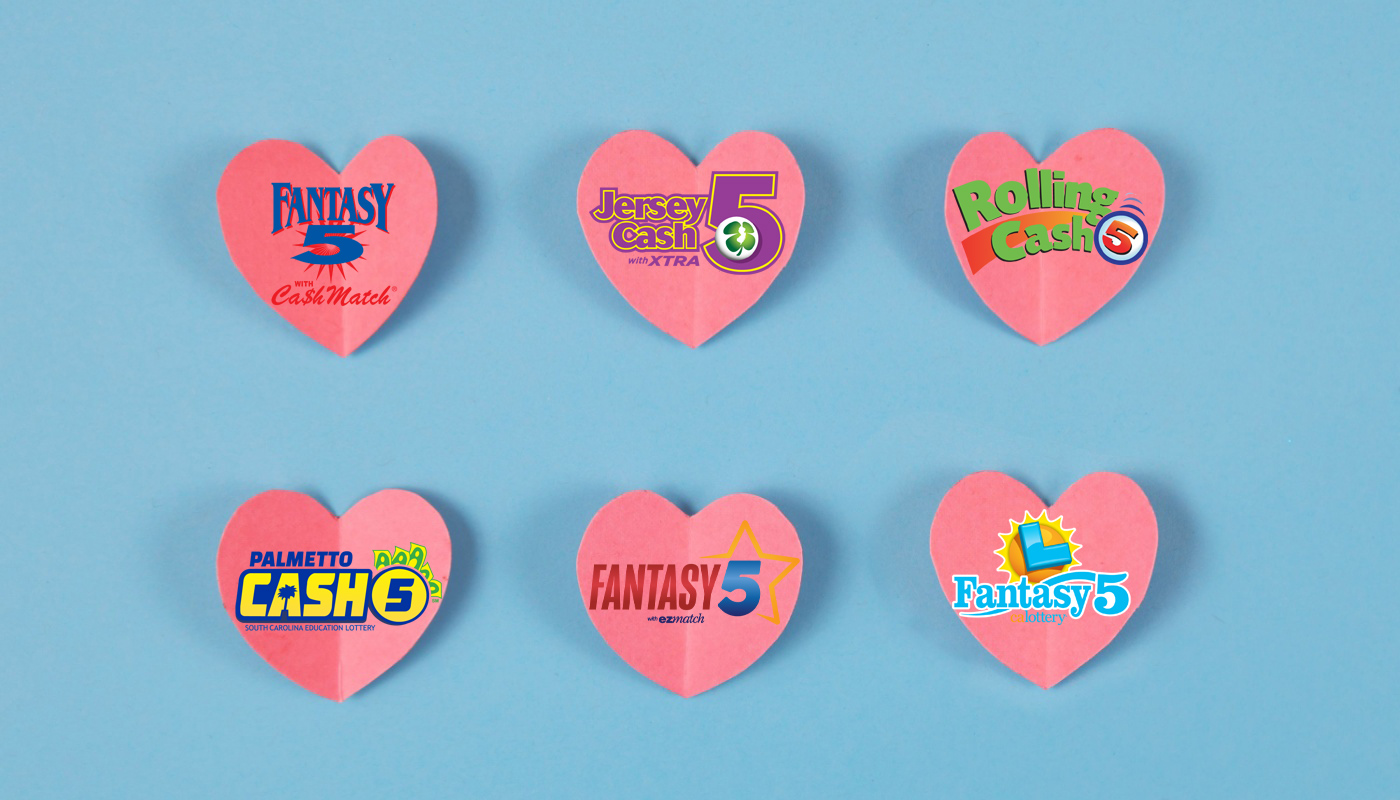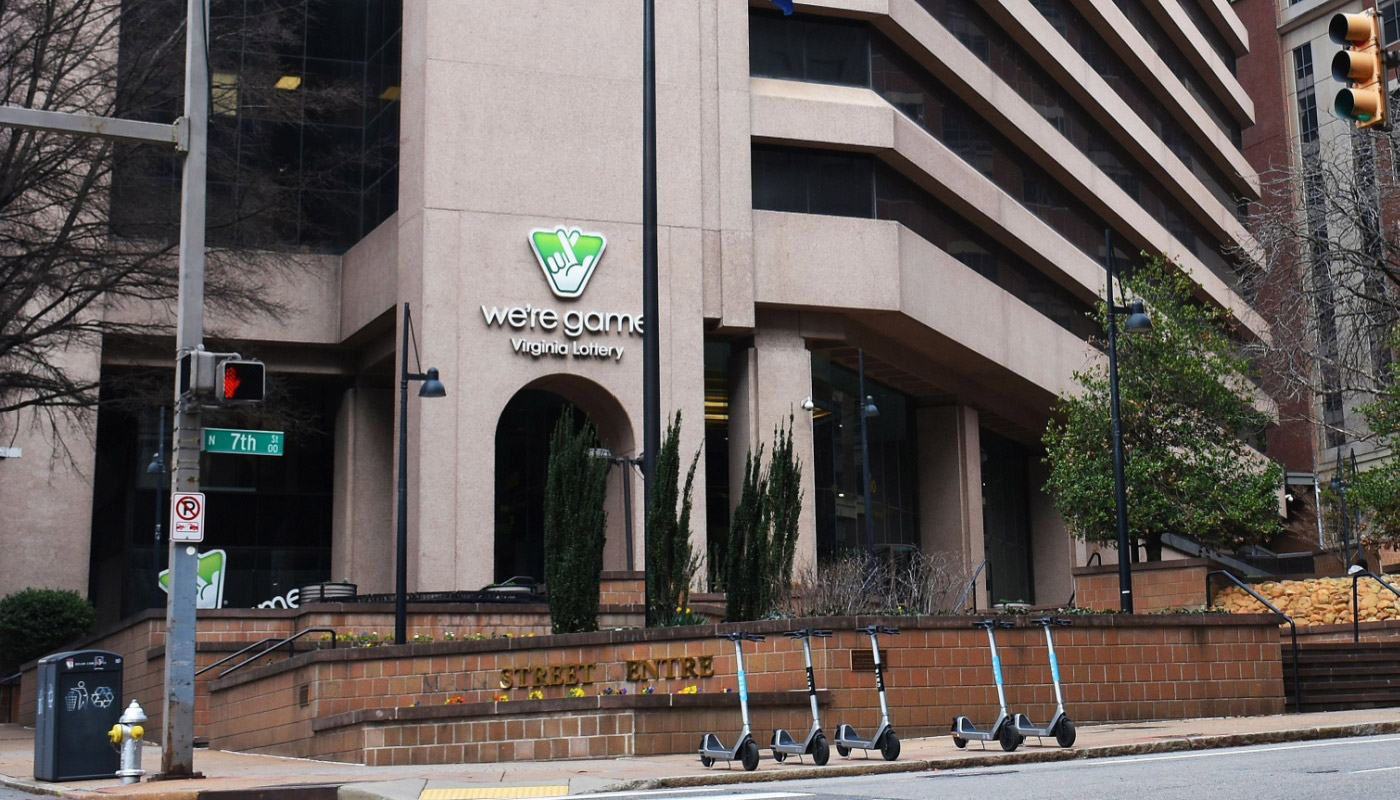
News writer; Opinion columnist
How much would you pay for a used lottery scratch-off ticket? A nickel? A penny? Probably nothing because a used non-winning lottery ticket has no value.
However, many lottery players have unknowingly purchased used tickets, spending their hard-earned money on games that they have no chance of winning.
Are these players dumb or blind? Of course not. Instead, they're the victim of a scheme known as micro scratching, a technique in which a criminal, often a store clerk, will scratch away just enough of an instant win ticket to see if it's a winner.
So, how often does this crime happen, and what can you do to protect yourself from buying a pre-played ticket?
Instant-lose lottery game
From crosswords to word searches, instant win scratch off lottery tickets have grown increasingly complex, and it can take some time to figure out whether your game is a winner or not.
However, there is a convenient way to shortcut this process. If you're in a hurry to find out if your ticket is worth money, you don't have to uncover any numbers, symbols, or letters. You just need to scratch off the covering over the game's barcode or pin. Using this code will tell you immediately whether your ticket is a winner or not and how much it's worth.
What some enterprising criminals have discovered is that by making a single, almost undetectable scratch, people can scan tickets, check whether they are winners, keep the ones worth money, and sell the losers to unsuspecting customers.
The primary perpetrators of this crime are store clerks who have access to vast amounts of tickets. Investigators in several states have found clerks engaged in micro scratching, stealing money from their employers and from lottery players.
Cheese heads cheaters
One of the first major investigations into micro scratching and retailer fraud occurred in Wisconsin in 2018.
A check of the Wisconsin Lottery records revealed that people, clerks, and owners associated with lottery retailers were winning disproportionately high numbers of prizes.
For example, convenience store clerk Khalil Audi of Cudahy, Wisconsin, cashed in 33 winning lottery tickets worth $88,000 over 9 years, from 2009 to 2017. He purchased 30 of his 33 winning tickets at Charlie's Liquor and Tobacco Mart, where he works.
Phillip B Stark, a professor of statistics at the University of California-Berkeley, told reporters that Audi would need to spend $191,697 —approximately $66 a day —to have a 1-in-10-million chance of winning that many games over just 8 years.
Shockingly, all of these wins don't even make him the luckiest player in Wisconsin.
Annie Mason of Milwaukee, Wisconsin, bought tickets worth $600 or more 65 times since 2000, for total winnings of $466,780.
Steve Kazik, a clerk at Oklahoma Liquor in Milwaukee, has claimed 21 winning tickets totaling $128,417. Twenty of his winning tickets came from the store where he works. Gas station owner and lottery retailer Charanjit Singh also has 21 wins, good for $90,000 in total value.
Statistically, this number of wins should be nearly impossible, which means these frequent winners may have found a way to cheat the system. Without access to the inner workings of the lottery ticket distribution system, micro scratching is one of the possible answers for how these clerks have stacked up so many wins.
The issue doesn't just affect Wisconsin. An investigation by the Iowa Lottery found several store owners and clerks were among the top winners of that state's lottery, including one player who cashed in eight winning tickets worth a total of $266,000 in just one year. All of the tickets came from the store where they worked as a clerk.
Despite this overwhelming evidence, most state regulators claim that they investigated these claims and found nothing wrong, and watchdogs have accused state lottery officials of not taking retailer theft seriously because this type of fraud doesn't affect their revenue, and they're not interested in enforcing it.
However, we've found several stories from across the country that show the prevalence of microscratching.
Gator bait
A Florida Lottery vendor became suspicious after noticing micro scratches on several lottery tickets at the Rebel Store in Jensen Beach, Florida. The vendor immediately notified Florida Lottery Officials, and they launched a formal investigation on June 14, 2022.
It didn't take them long to track down the perpetrator. Investigators reviewed surveillance footage from the store and observed clerk Christine Nicole Fenton-Gilbert discreetly making minor scratch marks in instant-win lottery tickets with her fingernail.
In their report, investigators stated that Fenton-Gilbert “would either push the tickets back into the dispenser or leave the tickets attached to the books where they were available for sale to the public,” after she had scratched them.
A review of surveillance footage from June 12 and 13 showed that she, “during her scheduled shift, pulling the ticket, scratching, and verifying the winnings.”
Prosecutors said that she stole tickets with a redemption value of $1,196 on those two days.
Further review of surveillance footage revealed that on May 7, 2022, she scratched and scanned a $20,000 winning ticket. An arrest report stated that “After she (Fenton-Gilbert) confirmed the winning ticket of $20,000, she paid for the scratch-off ticket from cash in her back pocket.”
When confronted by investigators with this evidence, Fenton-Gilbert claimed:
Sometimes tickets got caught in the plastic dispenser that holds the lottery tickets for sale (and) would leave scratch marks on the tickets.
She also blamed her long fingernails for inadvertently scratching the tickets. When investigators asked her about the $20,000 ticket, she told them she asked her father-in-law to cash it in because she didn't have ID.
Shortly after the investigation concluded, Fenton-Gilbert was fired from her job and arrested on several charges related to lottery fraud.
Eventually, she was found guilty on 16 felony charges related to altering lottery tickets. The circuit court judge sentenced her to 18 months in prison, an additional 13 years of probation, and ordered her to pay restitution of $20,000 to the Florida Lottery and an additional $1,196 to the Rebel Store.
She had faced up to 95 years in prison, but reduced the charges against her by pleading no contest.
Micro scratching leads to macro felony
Fenton-Gilbert might be a free woman if she had only learned from the unfortunate case of Emad Faragallah, a Florida store clerk who worked at the Radiant convenience store near Tampa.
Fragallah was even more brazen than Fenton-Gilbert, and he cashed in seven winning lottery tickets before he was busted.
Faragallah probably would have gotten away with his crimes until he made one major mistake that unraveled his entire scheme. He aroused the suspicion of lottery officials when he cashed in an instant win ticket worth $500 that wasn't scratched off.
That prompted lottery officials to give him a closer look, and they found that in the previous year, Faragallah had redeemed six tickets worth $1,000 each. A statistician estimated that he would have had to spend at least $250,000 to secure that many wins.
Lottery officials searched his store and found several micro-scratched lottery tickets. They also reviewed surveillance footage and observed Faragallah, “micro scratching tickets, checking them on the terminal, and placing tickets back into the display case to sell to customers."
And to add insult to injury, he didn't even pay for the winning tickets he took. Following the investigation, Faragallah was fired from his job and arrested for theft and tampering with lottery tickets.
Lottery player Eric Varsalona, who frequently bought tickets from the store, told reporters that Faragallah's crime:
Makes people like me not a winner, I guess, because I haven't gotten anything more than five bucks. If someone can figure out how to get around the system, it's obviously a flawed system to some extent.
Customer Jeff Zolna added:
He took all that opportunity of that lucky strike completely away from them. That's pretty harsh these days.
Following the investigation, the Florida Lottery issued a statement:
The Lottery will continue to take aggressive and meaningful steps to thwart unlawful activity, protect our players, and ensure that we are being vigilant in upholding the integrity of our products and games.
Texas two-step
In the case of store clerk Omar Ali, it was a few vigilant customers who busted him for digging for winning tickets. Ali, who worked as a clerk at the Timewise Food Store in Houston, Texas, ran into problems when his customers noticed that something was wrong with their lottery tickets.
Police say that multiple customers came forward to complain that lottery tickets they had purchased from Ali had been tampered with. When investigators looked into the matter, they found that Ali was using a pin to make small scratches in the bonus prize box so he could tell whether the ticket was an instant winner.
The clerk, who had worked at the store for eight years, would pocket the winners and sell the losers to his customers.
Several players told reporters that the incident made them reluctant to keep playing the lottery.
Customer Nathaniel Hagan explained:
I don't want to buy none from here no more. Taking away from the customers, but it ain't right though.
State fair scare
Mourad Zahi's life fell apart over just a few dollars. The store clerk's misadventure began when a man tried to cash in an instant-win ticket worth $15 at the Minnesota State Fair's lottery booth. Unfortunately, clerks at the booth told him that someone had already redeemed the ticket.
The man told officials he purchased the ticket at the Casablanca Market. Suspicious authorities checked the market's records and found that an unusually high number of tickets had been scanned and redeemed there, indicating that someone could be microscratching tickets.
The Minnesota Department of Public Safety's Alcohol and Gambling Enforcement Division (AGED) sent undercover agents into the store to purchase scratch-off tickets. When Minnesota Lottery officials checked their own records, they found that these tickets had been scanned before the AGED agent had purchased them.
The agents returned to the store with a search warrant, reviewed the surveillance footage, and saw multiple instances of Zahi micro-scratching tickets, scanning them, and selling the losers to unsuspecting customers.
In a report filed on the incident, investigators stated:
Notably, prior to each manual validation he conducted, the defendant (Zahi) was observed taking a scratch ticket/roll/or pack of tickets from the ticket dispensing area under the front counter, and then stepping out of view of the surveillance cameras for 30-60 seconds.
Following the investigation, Zahi was arrested and charged with five felonies, including two counts of State Lottery Fraud, two counts of Gambling-Cheating, and one count of Gambling-Attempted Cheating.
Protect yourself
We spoke with Daniel Kelly, a strategic communications supervisor with the California Lottery. He says that micro-scratching had been an issue, but that security changes to the tickets themselves had helped reduce it as a problem.
This was something that was addressed in 2016 with some changes to the games that I'm not really allowed to talk about. By making changes to both the tickets and the validation process, it is all but impossible to cheat. People are always looking for ways to game the system, but in general, we're on top of that.
While he could not go into specifics about the security changes to instant-win tickets, he did say it was not as easy to validate the tickets as winners.
The tickets were changed so that the way they are validated is not readily apparent through the tickets themselves. So, prior to 2016, there was information on the ticket that would tell you if it was a winner.
In case you want to take an extra step to avoid micro-scratched tickets, you can buy your games from a lottery vending machine rather than a person. Because machine tickets must be kept on a continuous roll, a clerk wouldn't be able to identify a winner, remove it, and keep the roll intact.
If a machine isn't available, make sure the instant win tickets you buy are still attached to the ticket roll and not sitting loose in the case. Also, after buying the ticket, give it a close visual inspection to confirm that it hasn't been tampered with and alert state lottery authorities if you do find a problem.



















Comments